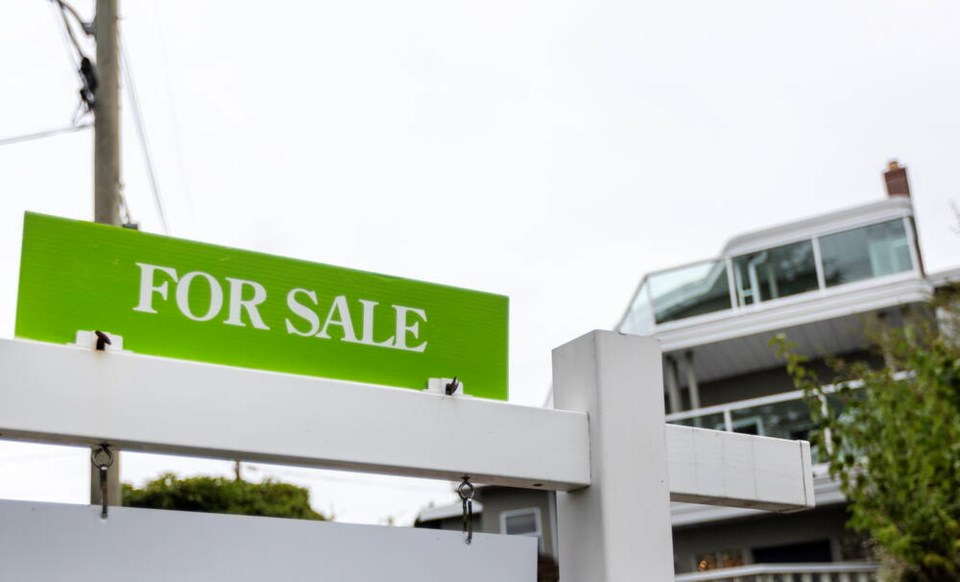The minimum annual income required to buy an average-priced Victoria home climbed to $184,800 last month, according to an online mortgage brokerage.
In Victoria, the minimum income needed to buy a home priced at the $888,000 average, which includes houses, townhouses and condos, rose $1,420 between July and August to $184,800, according to RateHub. The data focused on Victoria proper and does not include surrounding municipalities.
According to the latest census, the median household income in Victoria in 2020 was $67,500, while the average was $86,400.
Looking at 10 major cities in sa国际传媒, RateHub found home affordability — based on the minimum income required to buy an average-priced home — got worse in eight cities, including Victoria and Vancouver, which saw an increase of $1,480 in minimum income.
Despite the growth of home prices slowing down in many places and prices dropping in six of the cities the online brokerage analyzed, a rise in mortgage rates is leading to higher income requirements to purchase a home, RateHub said in a statement.
Two cities, Toronto and Hamilton, saw an improvement in affordability of $1,950 and $490 respectively.
Braden Wheatcroft, broker-owner and business coach of RE/MAX Camosun, said people are watching their buying power decrease because of increased interest rates.
“So some buyers may have started thinking about buying a single-family home, but due to changes in interest rates may have to strategize to buy a townhouse first, instead of a single family, or potentially choose an area a little bit outside what they were originally thinking to bring it into that price point,” he said.
Average sale prices are down since the peak of the market in about April 2022, he said, but RE/MAX’s average sale price was over a million dollars last month, compared with $870,000 two years ago.
While home prices and the minimum income required to buy an average home in Victoria are high, Wheatcroft cautioned that averages are misleading, and said people should not be put off from talking to a real estate professional about their specific situation.
Increasingly unaffordable housing has consequences on a societal level, leading to greater wealth inequality, said Justin Wiltshire, an assistant professor of economics at the University of Victoria.
“That can lead to greater social unrest and cause many overarching concerns in society. We know that higher house prices increase homelessness,” he said.
High house prices can also lower birth rates, because people who spend a greater proportion of income on shelter are likely to have fewer children or none at all, which leads to an aging population unless offset by immigration, Wiltshire said.
An unaffordable housing market also has significant impacts on the labour market, making it less appealing for workers to move to or stay in Victoria. That makes it more difficult for employers to find the workers they need, and might require them to increase wages or reduce hours of service if they don’t have enough employees. Those challenges can be passed on to consumers as well, Wiltshire said.
“If we want to go to a restaurant and it’s just closed on Mondays and Tuesdays and after 9 p.m. several other nights of the week, unlike in the past, then that means that even if we’re paying higher prices and higher tips, we’re still not able to get those services that we wanted,” he said.
Wiltshire doesn’t think house prices can continue to increase as rapidly as they have relative to income, but he doesn’t believe prices will come down significantly, either.
“If prices moderate and wages rise, then things become a little more affordable. And I think that’s probably our best-case scenario,” he said.
More aggressive increases in minimum wage are needed to raise the income of those at the bottom of the earning distribution, he said.
>>> To comment on this article, write a letter to the editor: [email protected]



